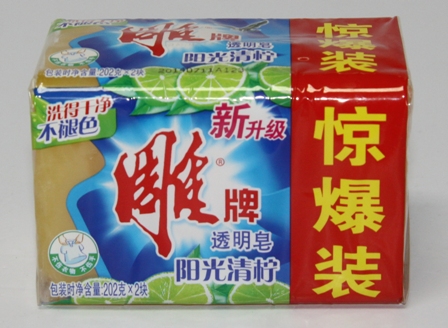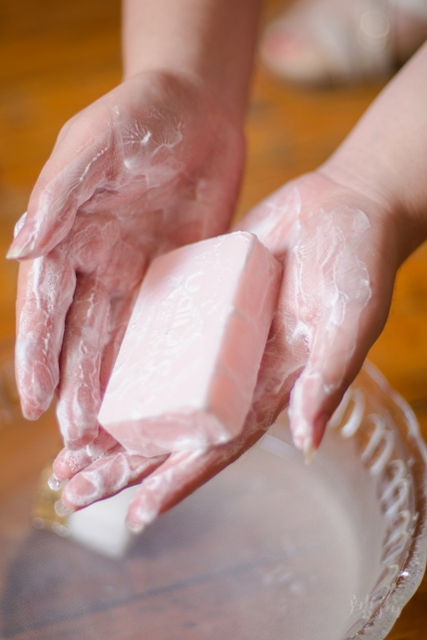Demand cleaning soap industry in China rose about 15.6 % from 2010 to 2015, with a favorable response to 2018. The following laundry soap and synthetic detergent manufacturing market research report provide an understanding of the market size and its growth potential.
The size of the Soap Industry in China
Products such as soap, bath, and shower China posted a net Evolution with an annual growth rate (CAGR) of 12.7% from 2009 to 2014. Market growth is driven by the shower, liquid soap, and gel soap because consumers are moving more and more into the basic bar of hard soap to more convenient liquid gel soap size. The growing awareness in Chinese consumer for the soap market opens new opportunities for brands to meet user demand.
The revenues for the soap, washing powder and synthetic detergent manufacturing industry in China has grown at an average annual rate of 13.2% over the past five years thanks to the rising awareness on hygiene in China and the rapid development of synthetic detergents including laundry detergents and liquid soap. By 2015, the industry revenue totaled $ 38.8 billion, up to 9.4% from the previous year. In addition, the high purchasing power of Chinese consumers has led to the reduction of the price of the products. In addition, there are more than 4,000 manufacturers and distributors throughout the country that have supported the development of the distribution network in urban and rural areas.
Companies soap, washing powder and synthetic powder industry detergent manufacturing in China are developing the laundry soap, transparent soap, soap powder, translucent soap, toilet soap, medicated soap, industrial soap, soap flakes and synthetic products. Synthetic products include household and industrial detergents used for laundry, dishes, body&hair washing and cleaning surfaces.
Market Development
Online commerce has become an important sale channel for the soap industry in China and is currently in the third position behind supermarkets and hypermarkets. The penetration rate of online commerce and the increasing popularity of online shopping, promote the growth of the soap e-commerce. Consumers with medium to high income are the main drivers of the online shopping for the soap industry.
With two-fifths (42%) of the population that are already online and 75% of this population are mobile users, the digital era give a solid base for brands to reach the consumers. It also offers the opportunities to reach each target market based on the age and the gender segmentation in particular for children, men, and mature consumers.
Manufacturing detergent and soap in China 2015 is very important for anyone who wants to invest in the soap detergent manufacturing industry, to get Chinese investments, to import or export from China, to build factories and take advantage of lower costs in China.
What is the market potential?

There are still many opportunities to develop new products in China, this is due to the large untapped growth potential in second or third tier cities such as China, southwest China, and northwest China, which, in 2013, together accounted for about a quarter of bath and body care total sales of the country.
There’s more demand for commodities toiletries in some less developed regions. Soaps made locally are now very popular in China, because of the growing disappointment with cosmetics that contain several varieties of chemical additives, these kind of soaps are gaining great popularity among consumers worried about the environment.
Indeed, the market for handmade soaps in China in 2015 increased by 110.5% compared to the last year. It is also noted that the main market for soaps is very successful in the coastal cities of China. Indeed, young female consumers in the age group of 18-29 years are considered the key customers. Including more than 40,000 varieties of handmade soap products, with a price range from 10 yuan to more than 100 RMB for 100 grams. Many of the most popular handmade soaps are sold in thousands of units each month. The category of soaps extends today to shampoos, facial care, body care and slimming products. Traditional soaps have natural and biological attributes and are considered one of the main reasons for consumers to opt for these cosmetic items. Indeed, the terms biological, ecological and natural are usually associated with a refined lifestyle and a guarantee of product safety.
Year after year, the soap industry in China took a big flight and is largely covered by imports. However, the high number of manufacturers in the country shows that this sector is still very lucrative, but faces a lot of change due to the transformation of the Chinese consumers’ habit.
To know more about China’s market, contact us at dx@daxueconsulting.com




